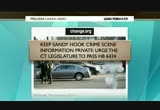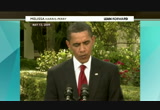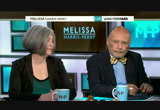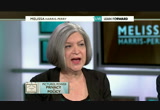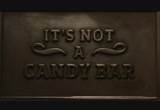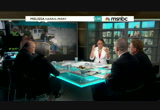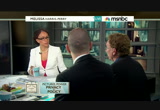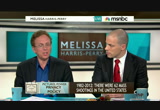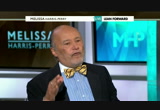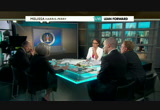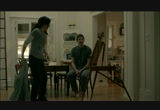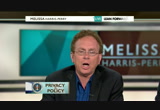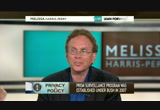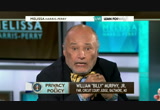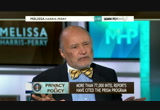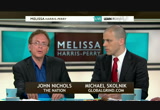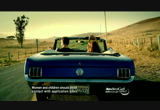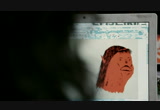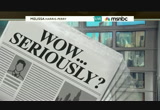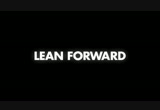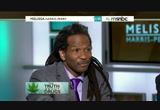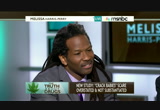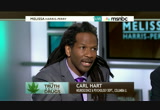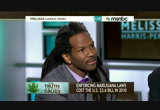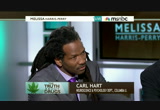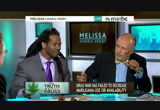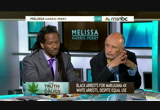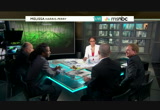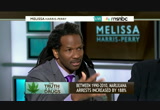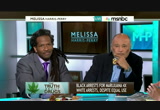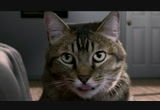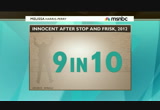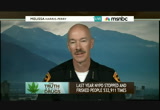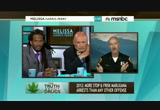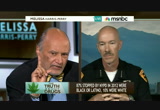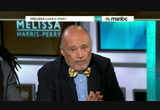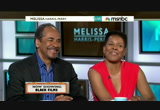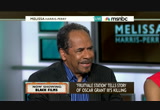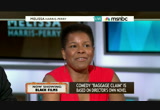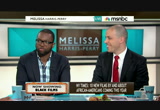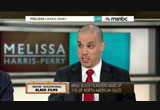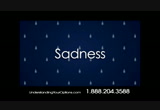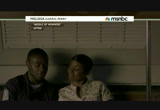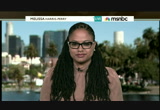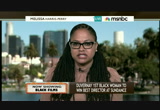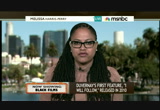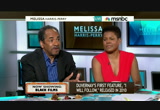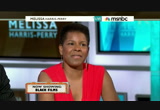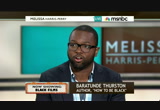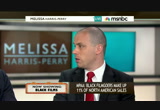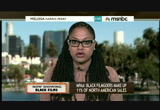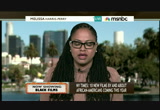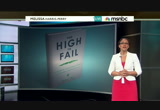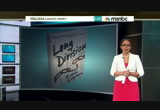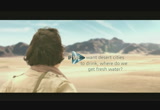tv Melissa Harris- Perry MSNBC June 9, 2013 7:00am-9:01am PDT
7:00 am
we can all produce energy more safely. safety is a vital part of bp's commitment to america - and to the nearly 250,000 people who work with us here. we invest more in the u.s. than anywhere else in the world. over fifty-five billion dollars here in the last five years - making bp america's largest energy investor. our commitment has never been stronger. this morning, my question -- how much do you really know about drugs? plus, how republicans are stomping on dreams. and black folks on the big screen and behind the cameras. but first, the power of a picture. weighed against the priority of privacy.
7:01 am
good morning. i'm melissa harris-perry. connecticut lawmakers made a pivotal move this paths week on the last day of the state's legislative session. on wednesday, both the statehouse and senate approved a bill preventing the release of crime scene photos and video evidence from the sandy hook elementary school shooting to the public. the law also put a one-year moratorium on audio recordings with the exception of 911 calls that describe the condition of any of the victims. connecticut governor dan malloy was quick to sign the bill into law only hours after the bill was passed. the bill's passage was applauded by family members of the 20 children and 6 adults that were killed on the morning of december 14, 2012. several family members had demanded the law, even starting a change.org petition which garnered more than 108,000 signatures. the families were clear about why they didn't want the pictures released. they said in writing, for the sake of the surviving children and families, it's important to
7:02 am
keep this information private. other gruesome scenes have been kept private like the scene around congresswoman shooting and the dale foster's accident. it should be afforded the same treatment. those victims families were sending the message they didn't want the photos of their slain children used for the purpose of political gain. but that's a long history of the impact that photos have had on public policy. a key example has been when we've been as a nation at war. some of the most indelible images come from the vietnam war. images of a 9-year-old girl whose clothes and skin were melted executing a veet kong officer by shooting him in the head. these help to change the american public's opinion to disdain our military's involvement in what was called america's most unpopular war. in 2009, when the pentagon lifted the military's 18-year
7:03 am
ban photographing the war dead showed the public the reality of military casualties from both the wars in iraq and afghanistan. photograph depicting tragedy and horror can be powerful tools that can change public perception and horror. showing those photos are not decisions that should be taken lightly. when president obama initially chose in 2009 not to release the photos of prisoners tortured in iraq and afghanistan like the images seen from the abu ghraib prisoners, forced to wear clars and hoods or masks, people jumped to the conclusion that he was trying to hide something. the president saw it this way. >> the most direct consequence of releasing them, i believe, would be to further inflame anti-american opinion and to put our troops in greater danger. >> so it's a tough choice. when it comes to choosing to show the image, the slain child, it's a decision no parent should be faced with having to make.
7:04 am
but it is a decision that maim i mobley did make in the case when her son emmitt till was killed in 1955. instead of having a reserved low-key private family funeral, may me decided to open the kos ket. to make the funeral a public experience. to show how killers, lynchers, j.w. milan and roy -- brutalized and tortured her 14-year-old son to death. her decision to show the unrecognizable face of her son emmitt served as a spark for the civil rights movement. till's example might lead all of us to -- be as brave as she was. sometimes gruesome photos can be used in political ways. i have sometimes helped women to walk the gauntlet past rabid anti-choice demonstrators. not only do they shout, they hold up ghoulish frightening
7:05 am
images. they're unrepresentative of the vast majority of abortions and they are not, however, strictly speaking, inaccurate. certainly anti-choice advocates believe the photos should stop a practice evil and torturous. i find the photos unduly upsetting for women facing deeply personal decisions and difficult decisions. what should we as a public ask of the newtown families? they want their children's short lives to belong to them. to be more than a tool in the gun control debate. who are we to tell them they're wrong? a professor of american studies at yale universities, the director of the photographic memory workshop. billy murray, one of the favorites at nerdland and a former circuit court judge for baltimore who works now as a criminal defense attorney. john nichols and author of the new book dollar okay rah si. and michael skoel i can, another favorite. editor in chief of global
7:06 am
grind.com and political director to russell simmons. thanks for being here. i'm going to start with you. your work is around the power of photographs and images. we in the nerdland production staff have been seriously wrestling with this. we've got two produce who are are like we got to see the photos, they could change the newtown conversation, the gun conversation. and on the one hand, i was like yes. on the other hand, i understand not wanting to show the pictures of your slain kids. >> yeah. the two questions about a common interest in seeing them and an individual interested in privacy are already very complicated. i think the question is made more complex by a kind of wish that the photographs themselves would serve as a magic bullet. if we could only see them, it would change the conversation and perhaps be the finishing off of the stalling on gun control. and i know, as a historian of photography, that actually is not so. it most likely won't happen. it's not true that a photograph
7:07 am
by itself changes the politics. so we know this from many examples. you gave some. i would add in my own life, the massacre, to the girl being napalmed and maim ee's till decision to show the open coffin of her son. when she showed that image, that image didn't travel around the world alone. there were a lot of people who were working on telling a particular story. what does that image actually mean? that story had to be controlled. it's the story along with the image. just about coincident in time with that image was the fact that there were lynchings all over the country and there were photographs made of them turned into postcards that were sent all over the country. >> right. >> that didn't spread civil rights and freedom. that spread terror and a sense of impugn at this. >> entering into a social movement and it feels to me like part of what's happened in our
7:08 am
gun's conversation. another aspect is that, if the images just enter, they're just gruesome, they become pornographic rather than part of activating a movement. >> that's exactly right. one thing to understand, this is a very different point in history than the late 1950s, early 1960s. we don't have three tv networks that come on at 5:30, 6:30, a handful of daily newspapers that are definitional. the truth of the civil rights movement is, when we started showing pictures, not just of emmitt till but bull connor with the fire hoses, that did have an impact. but that was in a very different time. today we are siloed. today we have so many ways that we get information. if those pictures were released and i'm not a fan of limiting release of photos, but i tell you if they were released, you would have some sectors of our political discourse condemning the use of the pictures for
7:09 am
political purposes. you would end up with a debate about the pictures rather than about the issue. >> as much as i am obviously a part of point of view news, right, that is really i'm not a reporter, i'm not a journalist, i don't make any claims to be. what we're doing here is always meant to be analytic and have a point of view. the lack of that, of the one person or one network that could sort of -- >> walter cronkite. >> who could put it out and you wouldn't feel it was being used in that way. is it about the siloing of our informational sources or i wonder, michael, if it's also that we've gotten to a point that the images of violence are ordinary for us. we see them in popular culture so regularly. >> let me tell you what was unordinary in newtown. nigh grandfather lives in newtown. i took my three-month-old to see my grandfather for the last week. i stopped by sandy hook. you can't go to the school but you can go to the street to have my son and pay our respects to
7:10 am
the families. this is a young boy, noah, the youngest to die, he was 6 years old. and his mother wanted to give him a traditional jewish burial in his coffin. she wanted to put two stones, angel stones in his hands. she wanted to put one stone in his right hand and closed the hand at the other stone in the left hand and there was no hand to put the stone in. out of respect to these families, she made the governor of connecticut, governor malloy, look at her son before she closed that casket. so she was courageous. she did do the moment with the governor. however, i think that for americans, we have to see these images. this is not about politics. this is about lifting the consciousness of our nation. we have to know, yes, these were angels that went to heaven, but this was a brutal, brutal attack on children whose hands were blown off, whose faces were blown off and torsos were blown off. this is not about glamorizing or
7:11 am
sensationalizing what happened there. it's the hover roar. >> the reason that could happen to those bodies is because of the technology used to kill them. in the case of emmitt till, i don't know any other word. it is the evil of the lynchers who do that to a teenage boy. in this case, it is the evil of the shooter, but it's also the fact that he's working with a weapon that can do this kind of damage. >> before i answer my mother's mad at you for calling me murray. >> i'm sorry. >> here's the deal. we can't predict how impactful these photographs will be in a political or nonpolitical consequence. legislation prohibiting them seeks to do just that. it says in all cases. except the exceptional ones. the photographs are going to have to run their course and we'll see contextually how they
7:12 am
play. all of us have had photographs impact us so dramatically that they've almost changed our politician and in some cases have changed our politics. photographs are a break on the evil of government. they're a break on the evil of individuals. we can't give them up because a few people are justifiably upset in their personal lives about them. this is a much larger issue. >> judge murphy, which i'm going to get that right now, we're going to come right back -- >> i wasn't mad. >> but your mom was. >> we're going to come right back and talk more about this issue of photographs and the power they have in our right to know as we come back. [ female announcer ] the best thing about this bar it's not a candy bar. 130 calories 7 grams of protein the new fiber one caramel nut protein bar. ♪
7:13 am
7:14 am
14 clubs. that's what they tell us a legal golf bag can hold. and while that leaves a little room for balls and tees, it doesn't leave room for much else. there's no room left for deadlines or conference calls. not a single pocket to hold the stress of the day, or the to-do list of tomorrow. only 14 clubs pick up the right one and drive it right down the middle of pure michigan. your trip begins at michigan.org.
7:15 am
7:16 am
debate, don't. because the shootings and gun violence continue unabated. on friday, yet another gunman went on a rampage terrorizing the city of santa monica california. he killed four and injured many more in a gun battle. according to police, he had 1300 rounds of ammunition on him. when it comes to solving gun violence, floss magic bullet that will serve, sorry, to bring the two sides together to come up with a solution instead of waiting on elected officials, the moment of change has to come from among the american people when we're finally no longer willing to accept rampant gun violence. you or anybody who follows you on twitter, michael, knows you were on in santa monica story, as you have been on all the gun violence stuff, immediately saying, let's pay attention, let's focus on this. yet, it had this sort of undercurrent in the news on that day. even in the days since. it hasn't captured our attention.
7:17 am
it's like we're just sort of inured to it. >> if we couldn't get a water downed background bill passed after newtown and democrats and republicans alike, we have a long fight ahead of us. what happened on friday in santa monica, you're absolutely right. people didn't pay attention. again, it was an ar-15. it tore apart people. this isn't a weapon you shoot deer with. you tear things apart with it. we all have to do things bepter. to the mothers and fathers in newtown and sandy hook, we have to fight for them, for the mothers and fathers in chicago who are losing their children on a daily basis. we had 24 shootings in 48 hours in new york city last weekend. an 11-year-old was shot in the neck and paralyzed. in brooklyn. we have to stand up for young people like that and continue the fight. i'm not going to give up you're going to follow me on twitter. >> i keep people keep saying, we were looking at the weapons from
7:18 am
1982 to 2012. 143 weapons used in mass shootings. 71 are semiautomatic hand guns. when people say, oh, these policies wouldn't make any difference. in fact, they would. when we look at how many were illegally obtained, this is data from mother jones. 49 of them out of the 62 were illegally obtained. so it would make a difference to have these kinds of policies. i wonder about this photos question. you guys got to talk about the osama bin laden photos during the break. there was another place where the public didn't have a right to know. that was another instance. >> this is the problem. i really understand -- i have a 9-year-old daughter, so i really understand where folks are coming from in connecticut. i respect that. the fact is when we pursing out what you can see and what you can't see as suggested by wise folks on this panel, you end up assuming the impact will be this or will be that. and we take the people out of the process. we were talking in our break
7:19 am
here about how members of congress get to see certain photos, get to see certain things. we make them a priestly class, a group of high priests. they are better than us. they can look at the photos but we can't. with all due respect, i can name you a number of members of congress who won't respond asthma turl or as well as the average american. why do we take the average american out of it? >> because it makes it easier to get it done. if you had stuff and then you stand behind, well, i told your representatives and 99% of the american public still don't know, you've accomplished your political purpose of keeping it secret. >> exactly. those representatives -- >> this is the kind of censorship that we cannot abide. >> i hear you on the ordinary americans and yet, like we had a cheerios commercial with a beautiful interracial baby and the white mama and the black daddy and the ordinary americans lost their minds. there's a part of me like yes,
7:20 am
ordinary americans should know and then i'm like whoa, ordinary americans. >> melissa harris-perry, you know a little more because of that incident. >> about the world. >> and so can we -- if we are to evolve as human beings. >> information. >> i think information is useful in that process. >> it's not actually just information. i believe we do need to see in order to know. i really think we can't imagine what this is. we need to see it. but i don't think that seeing is sufficient to knowing. and so that's why i actually respect the bill that governor malloy put in place even though i myself as a historian of photography want people to see. but i respect it because it has a sunset provision. it's saying that we have a moratorium for a year, which is really asking us to have this discussion. >> brings down the emotional piece. >> yes. >> let us have the discussion and we can't guarantee what the end of the discussion will be. but we can bring not the
7:21 am
priestly class but the whole public into this discussion. >> by the time we have this discussion -- >> that's right. >> -- the emotion that's necessary and proper to move the ball forward is gone. >> we thought after the killings that emotion, that was going to do it, right? we just thought that would do it. but that -- >> it takes another incident and another incident and another incident and more and more deaths. and so here is a clear case, i think, of where censorship is playing right into the hands of gun proponents. playing right against the interests of the people who want these photographs to be private. >> can i say something else that plays into t just a quick one. i know this is a tough one. because if i was one of these parents, i would want to not have this discussion. there's an immediate rush in to say let's not politicize this event. let's have a decent period where we don't talk about it -- >> we want to politicize it. >> whether you want to or not,
7:22 am
the bottom line is that when we shut the dialog down and when we slow the process down, that benefits the status quo. and the fact of the matter is, a lot of people are watching it are like why is the nra so silent? why are they holding back? i can tell you why. >> they're silent and they were holding back because they want to dial that conversation down. >> that's right. >> if you want change, you want to dial that conversation up. >> speaking of dialing the conversation up, especially on the issues of information and who has a right to know, we're going to turn the conversation just a bit in terms of talking about protecting privacy to the nsa conversation. can we really protect and liberate the information at the same time? look what mommy is having. mommy's having a french fry. yes she is, yes she is. [ bop ] [ male announcer ] could've had a v8. 100% vegetable juice, with three of your daily vegetable servings
7:23 am
in every little bottle. with three of your daily vegetable servings i've always had to keep my eye on her... but, i didn't always watch out for myself. with so much noise about health care... i tuned it all out. with unitedhealthcare, i get information that matters... my individual health profile. not random statistics. they even reward me for addressing my health risks. so i'm doing fine... but she's still going to give me a heart attack. we're more than 78,000 people looking out for more than 70 million americans. that's health in numbers. unitedhealthcare.
7:24 am
♪ right. but the most important feature of all is... the capital one purchase eraser. i can redeem the double miles i earned with my venture card to erase recent travel purchases. and with a few clicks, this mission never happened. uh, what's this button do? [ electricity zaps ] ♪ you requested backup? yes. yes i did. what's in your wallet? [ susan ] i hate that the reason we're always stopping is because i have to go to the bathroom. and when we're sitting in traffic, i worry i'll have an accident.
7:25 am
be right back. so today, i'm finally going to talk to my doctor about overactive bladder symptoms. [ female announcer ] know that gotta go feeling? ask your doctor about prescription toviaz. one toviaz pill a day significantly reduces sudden urges and accidents for 24 hours. if you have certain stomach problems or glaucoma, or cannot empty your bladder, you should not take toviaz. get emergency medical help right away if your face, lips, throat or tongue swells. toviaz can cause blurred vision, dizziness, drowsiness, and decreased sweating. do not drive, operate machinery or do unsafe tasks until you know how toviaz affects you. the most common side effects are dry mouth and constipation. [ susan ] today, i'm visiting my son without visiting every single bathroom. [ female announcer ] today, talk to your doctor about toviaz. before we get to nsa, there's too much happening at the table that i need -- there
7:26 am
were a couple of really important things that showed up in the commercial that i just want to bring our viewers for. the first was this conversation about rodney king and the rodney king video and the idea that that rodney king video was definitive. i want to ask you this, judge. obviously the video was insufficient for conviction, right? you would think -- i mean, so it was sufficient for a kind of urban uprising. is made people feel like they knew what had happened. but the jury in seeing it doesn't make a conviction despite seeing this video. talk to me then about why you still see the video as so critical to what happens. >> well, the video is what got the federal government involved in the second prosecution. remember how it went. first the video. second tremendous outrage. >> right. >> third, cry for prosecution. fourth, outrage about the acquittal in state court. fourth, federal prosecution, conviction end of story.
7:27 am
so the -- without the video, it would have been an urban tale. it would have been a story where the police are given the benefit of the doubt by white folks and indicted once again by black folks. the video brought the communities together. >> if i can jump on top of that for a minute. for most white people, we didn't think black folks got it this bad by the police. once we saw that, now it's a combination of police brutality. we believe it. that changed the consciousness. >> it's like the bull connor video. once you see the images, it makes it real. >> none of this silent -- >> another important aspect of this is the photographs can also backfire. they can show that someone is a victim. they can show the impugnity of the violence and the perpetrators. you have to control the story around how the photograph is used. >> there's a great example from another place of the killing of a number of jesuit priest this is el salvador in 1989.
7:28 am
there were photos release and it was horrific. i was shocked at the time by the response. i remember it very well. a lot of people saying well, that's how it is in el salvador. it wasn't the united states government has ties to people that are doing horrible things. it is, horrible things happen there. again, you were so wise in your argument that we must put these in context. no, they have to come in context. again, if we circle ourselves around, i think that this gun debate is alive at this point. these questions, the context is there to some extent. it is. >> but i think this point matters to me a lot i think. we see gruesome images happening to all kinds of bodies. but if we think those are the kinds of bodies that deserve those tortures or that that just happens, you were talking about the -- just the up close beautiful smiling image of pendleton and the sense of oh, this is the girl this shouldn't happen to. for many folks, the weeping black mother on an urban street
7:29 am
corner, it's like well, that's what black moms do. their kids get killed and they cry on tv. it becomes an ordinary part of our assumptions about what kinds -- it's part of where the newtown power could come. those changes are not supposed to be the ones. >> that's right. that's why newtown changed the conversation because they were white. >> and they were in school and they were so young. they were babies, right. >> that's really important. showing is always a matter of power. who is shown, who shows and what is shown, that's not what was expected and that's where the power of these come in. >> we can't miss the basic point that we don't really have control in the first instance of how people are going to react to what they see. >> right. >> so that's why the government wants censorship. that's why we have to fight against it. in many, many cases the people's reaction is correct. in many, many cases their emotional reaction causes politics to change.
7:30 am
we must not let the pictures be censored. >> we'll pause here and come back on nsa. this question of how the people respond, the people responded this week to the sense that maybe we're living in a government where people are reading our e-mails when we come back. kevin. to prove to you that aleve is the better choice for him, he's agreed to give it up. that's today? [ male announcer ] we'll be with him all day as he goes back to taking tylenol. i was okay, but after lunch my knee started to hurt again. and now i've got to take more pills. ♪ yup. another pill stop. can i get my aleve back yet? ♪ for my pain, i want my aleve. ♪ [ male announcer ] look for the easy-open red arthritis cap. ♪ happy birthday! it's a painting easel! the tide's coming in!
7:31 am
this is my favorite one. it's upside down. oh, sorry. (woman vo) it takes him places he's always wanted to go. that's why we bought a subaru. (announcer) love. it's what makes a subaru, a subaru. i gotta go deposit a check, transfer some money. so it's your uncle's turn. what? wait, wait, wait... no, no, no, wait, wait. (baby crying) so you can deposit a check... with the touch of a finger. so you can arrange a transfer in the blink of an eye. so you can help make a bond... i got it. that lasts a lifetime. the chase mobile app. so you can.
7:32 am
7:33 am
so while we're debating over whether the public should be allowed access to the horrific images from newtown, there's a whole bunch of other information accessed of which we know very little about. according to the digital-based newsroom, the guardian, a court order shows that the national security agency, nsa, is collecting the phone records of millions of u.s. verizon customers. on top of that, recently obtained top secret documents show beau the nsa and the fbi are data mining for nine of the leading u.s. internet companies. the data they're mining, according to the "washington post," includes audio, video, chat, photographs, e-mails, documents and connection logs. here's what national
7:34 am
intelligence director james clapper said yesterday in an exclusive interview with nbc. >> the notion that we're listening to everyone's phone calls is on its face absurd. we couldn't do it even if we wanted to. i assure you we don't want to. >> so john, james is like, we don't want to read your e-mails. keep your e-mails. we're trying to find terrorists. >> well, boy, the second he used the word voyeuristically looking. it opened up this new notion of a board nsa person at 2:00 a.m. might in fact be voyeuristically looking at e-mails. i hadn't thought of it that way. this is the huge issue. is it completely out of context? the fact of the matter is, in 2006, 2007, russ feingold, the chair of the constitution
7:35 am
subcommittee of the senate judiciary committee said they're taking our e-mails, they're data mining this stuff, they're listening in. he was talking about all of this. if you go back and look at the articles from 2006, i wrote them. and they're talking about the same thing. so what we've got now is confirmation. i think it upsets some people that barack obama is doing some of the same things that george bush did and we thought that he would be very, very different. >> who thought that presidents would be different than presidents? if you thought that, you're bad. presidents are democrat, republican, black, white, chicago, midwest, south, presidents really like control over -- >> i wrote that at the time. >> yeah. >> here's one thing that is really vital to put it in context. in this new book, we've spent a lot of time looking at the digitalization of politics. one thing people should be conscious of is if they think the nsa is trolling through their data, you should look at what political candidates and political parties are doing and
7:36 am
you should look at what corporations are doing. >> you know, actually if the corporations that make me most -- part of what i find interesting about the outrage is sure, i understand the outrage around the nsa. i also recognize them as part of a democratically elected government which at least in theory is responsive. google and facebook and twitter and all of these to whom i giveaway my information are corporations that aren't -- there's no even imagination that they would be responsive. we tend to give this information away to them. >> i'm suing google and facebook right now. >> yep, you know this. >> because they have tracked their users and in some cases they're nonsigned up users, internet serving habits. they can tell what articles you've read. what your politics are. they can tell what you buy. the danger of that is obvious. nobody should know that much about you. there ought to be transparent privacy policies that let people opt out of these services rather
7:37 am
than you having to go through one page after another and read fine print and ultimately be confused about what the privacy policy, which is today's state of play. so we're suing them because we believe they violated the wiretap act. let's take it a step further. we always believed that one of the reasons we ought to stop this corporate data mining is because the government was going to get it. and the government can get it very easily on top of the table and now we find that they're getting it under the table. and this is a vast data mining project unlike anything in the history of the world. there is nobody that knows more about us as individuals today than ever before. that includes soviet russia, that includes china, that includes all of the nations of the world. so this is big-time stuff. this isn't stuff to sneeze at and big brother has arrived. you know how he arrived? with the best of intentions. we were always afraid he would.
7:38 am
we would always wonder whether or not americans are going to say security trumps everything and that's how dictatorships get started. >> i'm obsessed with adolescent distaupe i can novels. i read them as my airplane reading. it's about the authoritarian societies that begin with the best of intentions for the purpose of making people safe and happy and secure. in both the newtown photos case and in this case, it's a case about individual liberties and how much we're willing to take even the negative aspects because we see liberty itself as such a value. >> it's a bigger question. it's a bigger question. because this is changing our l politics and our lives. the fact of the matter is, i know we're talking about the corporations, being concerned about the corporations. understand this. when political candidates and parties rely on data mining to determine how they communicate and who they reach out to, they begin the game of piecing together a narrow coalition
7:39 am
instead of those visionary statements that mied build a governing coalition that could actually do something. we are narrowing our discourse. >> they sell us a government instead of -- >> exactly. >> that's not healthy. >> my concern with that argument is that yes, the political campaigns and yes corporations are a problem. they might lead to a mailer, to a phone call. but nsa leads to an arrest. it leads to a lifetime -- >> it's the power of the state. >> diminish that at all, but it is to say that we need to understand that i mean, we actually still think the word propaganda as an unsettling thing, right? >> there's another problem about it as well. which is that there's a predictive quality to it. all of the big data and all of the data mining and the pattern of our lives that they can put together from that can be used to predict, for instance, that you are profiled as the kind of person that is likely to commit a crime.
7:40 am
>> yeah. >> so you can be detained -- >> tom cruise did a movie about that. >> that's right. this is nowlan done for real. >> i'll make a claim that we already do that and just do it on less predictive data like skin color. i want to say thank you so much for you for joining us. the rest of the panel is staying. downward dog and the devil? wow. seriously? both tylenol and bayer back & body
7:41 am
are proven to be effective pain relievers tylenol works by blocking pain signals to your brain bayer back & body's dual action formula includes aspirin, which blocks pain at the site. try the power of bayer back & body. see, i knew testosterone could affect sex drive, but not energy or even my mood. that's when i talked with my doctor. he gave me some blood tests... showed it was low t. that's it. it was a number. [ male announcer ] today, men with low t have androgel 1.62% testosterone gel. the #1 prescribed topical testosterone replacement therapy increases testosterone when used daily. women and children should avoid contact with application sites. discontinue androgel and call your doctor if you see unexpected signs of early puberty in a child, or signs in a woman, which may include changes in body hair or a large increase in acne, possibly due to accidental exposure. men with breast cancer or who have or might have prostate cancer, and women who are or may become pregnant or are breast-feeding, should not use androgel.
7:42 am
serious side effects include worsening of an enlarged prostate, possible increased risk of prostate cancer, lower sperm count, swelling of ankles, feet, or body, enlarged or painful breasts, problems breathing during sleep, and blood clots in the legs. tell your doctor about your medical conditions and medications, especially insulin, corticosteroids, or medicines to decrease blood clotting. in a clinical study, over 80% of treated men had their t levels restored to normal. talk to your doctor about all your symptoms. get the blood tests. change your number. turn it up. androgel 1.62%. [ whirring ] [ dog barks ] i want to treat more dogs. ♪ our business needs more cases. [ male announcer ] where do you want to take your business? i need help selling art. [ male announcer ] from broadband to web hosting to mobile apps, small business solutions from at&t have the security you need to get you there. call us. we can show you how at&t solutions can help you do what you do... even better. ♪
7:43 am
and didn't know where to start. used a contractor before can help you do what you do... even better. at angie's list, you'll find reviews on everything from home repair to healthcare written by people just like you. no company can pay to be on angie's list, so you can trust what you're reading. angie's list is like having thousands of close neighbors where i can go ask for personal recommendations. that's the idea. before you have any work done, check angie's list. from roofers to plumbers to dentists and more, angie's list -- reviews you can trust. i love you, angie. sorry, honey. every week the nerds in nerdland come across all kinds of stories we want to discuss with you. some stories are so absurd that all we can say is wow, seriously? first up, i know we talked about mitt romney, but he keeps dropping gems of obliviousness. watch what he talked about
7:44 am
hurricane sandy's effect on the election. >> i wish the hurricane hadn't of happened when it did because it gave the president a chance to be presidential and to be out showing sympathy for folks. that's one of the advantages of incumbency. you don't look back and worry about each little thing and how could that have been different. you look forward. >> yeah, mitt. don't sweat the small stuff. it was just a superstorm that killed more than 150 people and caused more than $50 billion in damage. also displacing three quarters of a million people, tens of thousands of whom who are still homeless. that hurricane really screwed you, didn't it? the republican candidate for lieutenant governor in virginia, e.w. or as i like to call him ew jackson. excerpts from his 2008 book, ten commandments to an extraordinary life were reported this week. boy, oh, boy wow seriously, among other things, jackson
7:45 am
warned this against for his readers, he warned them against the dangers of meditation. according to the national review, he wrote "when one hears the word meditation, it conjures the image of ma ha rish i yoga, talking about finding a mantra and striving for nirvana. the purpose of such meditation is to empty one's self. satan is happy to invade the empty vacuum of your soul and possess it. beware of systems of spirituality which tell you to empty yourselves. you'll end up filled with something you probably don't want." much like when you don't vote, you can end up with a lieutenant governor and that seat filled by someone you don't want. next we have house republicans. this week almost every republican congressman along with three democrats voted undo the president's executive order that defers deportation for undocumented immigrants brought into this country as children. the same policy known as the dream act that lawmakers are trying to include in their
7:46 am
bipartisan immigration reform bill. in other words, the republicans voted to deport the dreamers. and they were roundly booed. >> the amendment is adopted. >> wow. how is that rebrand going for you gop. winning over any of the latino voters yet? and seriously, this vote happened on the same day that house speaker republican john boehner had an op-ed on the spanish language news site making the claim that republicans are better for latinos. the title of the op-ed, protecting the american dream. seriously? it's like you guys are trying to make this segment every week. just wow. up next, everything you thought you knew about drugs in america could be wrong. so i can't afford to have germy surfaces. but after one day's use, dishcloths can redeposit millions of germs. so ditch your dishcloth and switch to a fresh sheet of new bounty duratowel.
7:47 am
look! a fresh sheet of bounty duratowel leaves this surface cleaner than a germy dishcloth, as this black light reveals. it's durable, cloth-like and it's 3 times cleaner. so ditch your dishcloth and switch to new bounty duratowel. the durable, cloth-like picker-upper. [ male announcer ] moving object detection. ♪ blind spot warning. ♪ lane departure warning. safety, down to an art. the nissan altima with safety shield technologies. nissan. innovation that excites. ♪
7:50 am
who is six months pregnant, smokes crack cocaine, usually 20 vooils, $120 a day. she knows the risk to her baby. >> chances that the baby could come out premature, deformed, really is the health where it can come out addicted too. >> that was the grim future predicted for the so-called crack babies born to drug addicted mothers. infants thought to be doomed for life with developmental and physical disabilities, destined to drop out of school or commit crimes. but that turned out not to be quite true. according to maureen black, a professor of pediatrics at the university of maryland school of medicine, the crack baby scare was overstated and not substantiated. she was the lead author of a new review of 27 studies covering 5,000 children. the research found only subtle differences in the behavior of kids exposed to cocaine in the womb and those who weren't. in fact, some studies say the
7:51 am
cultural assumptions about the crack babies may do more harm than the drug itself. for a closer look at the real impact of drugs on our society, i'm joined by carl hart, associate professor of neuroscience at columbia university and the author of high price, a neuroscientists journey of self-discovery, everything you know about drugs in society. back with me are former judge and criminal defense attorney william murphy. correspondent fe nation mag jean and michael sul nick. this book was intense to read. in part because of moments like challenging our fundamental assumptions like the crack baby narrative about what drugs do and don't do to us. what are the big myths we have about drugs? >> there are multiwill myths. one of the biggest is the majority of people who use drugs, crack, heroine, are addicted. the vast majority who use drugs,
7:52 am
85% or so do so without a problem. but yet most of our attention is focused on this small pathological numbers of users. >> when you say addiction, the way defined in the text, you say addiction is not just about regular use, that's a pattern of behavior. addiction is when it creates problems in family life, work life, in your sense of self. for 85% of drug users, that is not the circumstance. >> one of the things that people will help people think about this more reasonably is think about alcohol. we know people who use alcohol on a daily basis, a glass of wine. >> i live in new orleans. >> exactly. >> that's not even an indictment. >> not at all. >> problem if you don't. >> that's right. >> so when we think about how we use alcohol in this society, there are people who use cocaine in that way. >> i want to be clear. no one is suggesting it's a good idea to do cocaine or smoke
7:53 am
crack while pregnant any more than we would say it's okay to smoke or drink while pregnant. >> or not to eat well or exercise. all of those things. >> there is a way in which the social norms, the stereotypes that were -- that came as part of this moral panic around it created real policy. in some cities, the desire and the ability and the laws to lock up women who were found with traces of cocaine in their system, they could be incarcerated if they were pregnant. >> you are a historian, you're a political scientist but you know history. if we go back to the turn of the 20th century, early 1900s. these sorts of things were done with powder cocaine in terms of black people. there was a 1914 article in "the new york times" called the negro cocaine is a southern menace. it described black people on cocaine are more murderous, unaffected by bullets, rape
7:54 am
white women. a wide range of things. drugs have always been used as an excellent scapegoat to go after those groups in which we don't like in the society. >> one of the things i love most about the book is the way in which you talked about what happened to rats. a lot of what we know about how brains respond to drugs has to do with what we know from animal studies. the idea that rats, when kept in lonely cages, solitary without social supports, without other things to do, without sex do a lot of drugs all the wa i to the point of death. but if they have a girl rat with them and friends and family and something to run around on, they do less drugs. >> yeah. it's just like us. if we have alternatives, things that compete with drugs, somebody you like or some other activity, the likelihood of you using drugs certainly to a pathological point is decreased. we know in and we have known this. but the problem is, that hasn't been emphasized in part because drugs are great scape gots.
7:55 am
they increase the budgets the not only law enforcement but researchers. >> i actually love your research where you are -- i want to ask one last question. we'll pull other folks in here. i had a couple a men moments when i read the book. one was that it shows the teens either not caught or are given noncustodial sentences for crimes related to drugs do better in terms of employment, education and reduced recidivism than those incarcerated or otherwise removed. what that suggests to me is that the problem isn't the drug use, the problem is being -- so if you use drugs but never caught, ie, if you're from a privileged community. >> in other words, if you're white. >> white and privileged. if you're a college student doing the drugs between classes, that the real problem, the loss of employment, the loss of educational opportunities, the loss of social standing comes from the incarceration from the arrest, not from the drugs. >> one of the things i tried to
7:56 am
do in my book was to show -- use myself as an example. so if you look at me, i certainly did drugs as a youth. i certainly engaged in pretty crime. there were friends of mine who did the same thing but they got caught. they got caught up. they are currently, their lives are currently destroyed. i'm a professor, a tenured professor at columbia. that's the anecdote that supports the empirical information. >> our last three presidents, i mean, president obama has admit mitted to having recreational drug uses use, clinton, being aware of it. >> touching it. >> but not inhaling. >> of course, a president who had an alcohol problem. >> also marijuana at the frat house. >> i'm bringing everybody else in as soon as we get back from the commercial. because we're just getting started. this book is setting the table for us. we're talking about the drug war in black and white when we come back. i don't like to golf.
7:57 am
i love to golf. ♪ [ grunts ] yowza! that's why i eat belvita at breakfast. it's made with delicious ingredients and carefully baked to release steady energy that lasts... we are golfing now, buddy! [ grunts ] ...all morning long. i got it! for the win! uno mas! getting closer! belvita breakfast biscuits -- steady energy to do what i do all morning long. i have a great fit with my dentures. i love kiwis. i've always had that issue with the seeds getting under my denture. super poligrip free -- it creates a seal of the dentures in my mouth. even well-fitting dentures let in food particles. super poligrip is zinc free. with just a few dabs, it's clinically proven to seal out more food particles so you're more comfortable and confident while you eat. super poligrip free made the kiwi an enjoyable experience. [ charlie ] try zinc free super poligrip.
7:58 am
there was this and this. she got a parking ticket... ♪ and she forgot to pay her credit card bill on time. good thing she's got the citi simplicity card. it doesn't charge late fees or a penalty rate. ever. as in never ever. now about that parking ticket. [ grunting ] [ male announcer ] the citi simplicity card is the only card that never has late fees, a penalty rate, or an annual fee, ever. go to citi.com/simplicity to apply. otherworldly things. but there are some things i've never seen before. this ge jet engine can understand 5,000 data samples per second. which is good for business. because planes use less fuel, spend less time on the ground and more time in the air. suddenly, faraway places don't seem so...far away. ♪ suddenly, faraway places don't seem so...far away.
7:59 am
given way to sleeping. tossing and turning have where sleepless nights yield to restful sleep, and lunesta eszopiclone can help you get there, like it has for so many people before. do not take lunesta if you are allergic to anything in it. when taking lunesta, don't drive or operate machinery until you feel fully awake. walking, eating, driving or engaging in other activities while asleep without remembering it the next day have been reported. lunesta should not be taken together with alcohol. abnormal behaviors may include aggressiveness, agitation, hallucinations or confusion. in depressed patients, worsening of depression, including risk of suicide, may occur. alcohol may increase these risks. allergic reactions such as tongue or throat swelling occur rarely and may be fatal. side effects may include unpleasant taste, headache, dizziness and morning drowsiness. ask your doctor if lunesta is right for you. then find out how to get lunesta for as low as $15 at lunesta.com there's a land of restful sleep, we can help you go there, on the wings of lunesta.
8:00 am
welcome back. i'm melissa harris-perry h this is a new report, it's a big one released just this week from the american civil liberties union. it unequivocally lays bear the truth of the drug policy. the truth is it's biased, it's broken and it's costing us billions. the analysis took an in-depth look at the enforcement of marijuana possession laws. here's what they found. when it comes to marijuana use rates among black and white americans are nearly equal. every year in 2001 to 2010, more white blacks than black votes between the ages of 18 and 25 reported using marijuana in the previous year. when the aclu looked at who our justice system condemns to criminality because of that use, the analysis found a vast inequality. black people are four times more likely to be arrested than white people who light up at the same
8:01 am
rates. between 2001 and 2010, most arrests, 88% were for simple possession. not people like the suburban mom charged with running this $3 million pot operation. no. the vast majority of people whose lives become en snared in the criminal justice system were found with just enough for personal use. those cases where someone was busted for possession account for nearly half of all drug arrests. the aclu calculated one marijuana arrest every 37 seconds in 2010. that's every 37 seconds that you should imagine money flying out of your pocket because the price tag for enforcing the marijuana possession laws that enable those arrests is $3.6 billion of your taxpayer money. in exchange for your money, here's what you get from drug policy. a complete failure to decrease the availability or use of marijuana and hundreds of people disproportionately african-american whose lives are
8:02 am
ir ref cably changed. >> i'm joined at the i believe by the professor from columbia. he's the author of high price. judge billy murphy, a criminal defense attorney and former circuit court judge for the city of baltimore. john nichols, washington correspondent for the nation and michael skull nick. is there anything in there that we didn't already know? >> no, there's nothing in it that we didn't know. if we were paying attention. >> yep. >> but it is still very important. it's like the nsa stuff we were talking about. we know a lot of stuff. to have it confirmed, to have the data, to have it come out and to force this conversation we're having here, it comes in context. there's something i happen to think of as very positive going on in this country. across this country people are voting to strike down these laws
8:03 am
against marijuana. we have statewide referendums across this country, local moves to decriminal niize and even to legalize. the fact of the matter is, everything this study shows tells us that the only way we're going to begin to address this is with removing those laws. you cannot change -- >> what this report comes down to is you have to legalize it for 21 and above and create rules around it like with alcohol. you can't expect an enforcement that isn't biased as long as it's illegal. >> melissa, i don't know if we need to legalize marijuana. as i delineated in my book, the first thing is we're trying to decriminalize it. >> it means it's still illegal, but people can get a criminal record for it. i think that's the first step. the second step we need -- >> i want people to understand the difference. give me something in this world
8:04 am
that is illegal and not criminalized. >> let's think about driving. when you have a driving infraction. instead of sending you to jail, you pay a civil fine. that's decriminalization. that's what i argue for for all drugs in fact. in terms of the legalization, one of the things that concerns me is that the country is like adolescents. they're infants when it comes to drug education. there are so many myths and misunderstandings that people will get in trouble if you have a widespread or wide availability. criminalization for me is an intermediary step and where we can have in a corresponding amount of education that goes along. then if we want to think about legalization, then that's fine. >> why do you say all drugs should be decriminalized? >> that's a great point. i say that all drugs should be decriminal niezed. drugs are like automobiles. just like automobiles, they're
8:05 am
potentially dangerous. but we know how to minimize the harms associated with automobiles. we can do the same thing with drugs. but you, the american public, has been misled to believe that drugs are so dangerous that they cause these extreme brain changes. simply not true. that's supported by the weight of the evidence. >> is it not true that drugs -- are you making the claim that illicit or illegal drugs are simply not that different that we get via prescription or are you saying drugs don't impact our brain chemistry. i'm thinking people going through everything from cancer treatment to infertility treatment recognize when you put a substance in your body, it can make an enormous physical difference. >> you make a good point. adderall is the attention deficit disorder drug. >> which we hand out to kids. >> they are the same drug. my research shows and other people's research show they're
8:06 am
the same drug. morphine, the pain medication, exact same as heroin or oxycontin. >> that's not to say people can't get in trouble with the drugs. it's simply to say we know how to decrease harm. >> carl, doesn't that take us to the issue of self-medication? we have a lot of people who in a broken health care system are looking for something to ease the pain and we have a lot of our drug problems in this country are legal drugs, right? >> if i could just -- back to the aclu report for a moment if i could. the challenges, the ramifications of the racial bias over drug policy, stop and frisk here in new york. we have more marijuana arrests under stop and traffic than gun arrests. >> guns, not so bad. >> a 14-year-old kid gets picked up for possession. he goes to jail for a night. just one night. i says judge i could do this. i can do a night. the next weekend he's picked up,
8:07 am
got to wait until monday, he does the weekend. i can do a weekend. i can do six months, i can do 18 months, i can do 36, i can do 55 years. i'm 65 years old and dying in jail. it's conditioning young black and brown people of a life in prison. >> on the streets there is a saying. you're not a man unless you've done some time. can't get any worse than that? my god, this is black men persuading other black men that a rite of passage is going to jail. >> yeah. >> give me a break. >> that said, we've had kids at the table here. we try to often bring in young people who have said to us that it's less that sort of pressure from other young african-americans and more not just the, well, i can do that, but the dehumanizing experience of walking down the street and finding yourself suddenly pushed against the wall, having your pockets turned out. if you are a citizen of a
8:08 am
country, your mom is a taxpayer, she's a school teacher, you're walking down the street, but your body is always assumed criminal niezed. the impact that has, not -- if you get the arrests, sometimes it means no more student loans, no more public housing. no more opportunity for certain kinds -- in many places in the country, no more ability to vote, right? we actually -- >> can we -- let's talk about some of the assumptions related to the way we legislate these drugs. one of the the major assumptions is that drugs are so dangerous. marijuana is so dangerous, so we have to go after it with all of this force. >> it's a gateway. >> it's a gateway, it's dangerous. one of the things i've laerd in my years of research that drug effects are predictable. increase the dose, you get toxic effects. the other thing i've learned, black boys and black men interactions with police are not
8:09 am
predictable. that's why you have graham up in the bronx, the kid killed because they thought he had marijuana. that's why you had trayvon martin, george zimmerman thought that he was under the influence of some drugs. that sort of belief, those assumptions are even more harmful when those kind of things happen. >> it was useful as i was reading the text that part of what's going on here, you say that when we talk about drug use, it's not just an individual physiological experience. it's a collective experience. you say one of the big myths of drugs is the idea that crack destroyed black communities. that crack is the thing that came in and destroyed the communities. i'm thinking, michael, we're around the same age, maybe you're a tad younger. i mean all of those films, sort of from that moment that said from new jack city to -- >> jungle fever. >> the whole deal. >> we love -- >> it was just -- a bombardment of media. that black people are bad and
8:10 am
bad and we bought it hook line and sinker. >> even in hip hop, people are saying how awful crack cocaine is on one is and the lamenting the laws that condemn it. >> it's such a convenient target. such a convenient thing to talk about. what do we have in the parallel of that period. we have the deindustrialization of our urban areas. if you want to look at the history of the last 25 years, really, district, you're going to see factory after factory after factory closing. >> that's right. >> one of the fundamental realities is that you've taken areas where often people were invited to, come to the south to the more en lightened north, come and live in the neighborhoods. you have ripped the economic core out of them, right, and you say, well, it must be the drugs that are the problem. >> as soon as we come back, i want to talk about alternative toss this and -- because i want to be clear, parents, we're not encouraging you and your children to smoke crack together. that's not what's going on here.
8:11 am
we want to bring down, the tamp down the anxiety to have a serious look at what actually needs to be done. what are the real problems when we come back. [ male announcer ] this one goes out to all the allergy muddlers. you know who you are. you can part a crowd, without saying a word... if you have yet to master the quiet sneeze... you stash tissues like a squirrel stashes nuts... well muddlers, muddle no more. try zyrtec®. it gives you powerful allergy relief. and zyrtec® is different than claritin® because zyrtec® starts working at hour one on the first day you take it. claritin® doesn't start working until hour three. zyrtec®. love the air. claritin® doesn't start working until hour three. (alarm clock buzzer) ♪ (announcer) friskies. now serving breakfast.
8:12 am
8:13 am
8:14 am
helps him deposit his checks. jay also like it when mother nature helps him wash his car. mother nature's cool like that. citibank mobile check deposit. easier banking. standard at citibank. the city of new york stop and frisk policy is an epic fail when it comes to goal of recovering illegal guns. it's been more successful at something else. the city's very own version of marijuana drug policy. according to the new york aclu, of the more than 500,000 stops conducted last year, nine of every ten resulted in in no arrest and no summons. but in more than 5,000 arrests for marijuana possession.
8:15 am
in fact, it was the cause of more stop and frisk arrest than any other offense. the primary targets were the 87% of black and latino new yorkers who were stopped and frisked in 2012. confronted with the rules of this biased system, nerdland friend and host of this week in blackness, elan james white got together with a few other familiar faces and came up with a new -- with a few stop and frisk rules of his own. then inspired by the notorious ken track commandments. he put them together in a hip hop track called the ten frisk commandments. stop add and traffic all the time -- ♪ ♪ abuse of authoritative mights. folks scared to fight for rights. ♪ joining our conversation from salt lake city utah and i know he's never had an intro
8:16 am
like that before is the city's police chief, a national expert on reducing racial bias in policing immigration policy and using social science. >> thank you for having me. >> talk to me on a basic level. how do you train a police force to police without profiling? >> well, difficult challenge. because we all come with inherent biases. things that we've learned throughout our growing up years. but the focus always needs to be on behavior. never on what a person looks like but what is their behavior. what can we articulate. when you look at standards of law, that's what they're based on. how does a person slook nlook in indicator of criminal activity. their behavior is. >> we talked about decriminalizing marijuana and other illicit drugs. what would happen to your police force, to the way that you use
8:17 am
resources if you were not having to make arrests for drugs? would it shrinking your resources because you get resources from the federal government or would it free you it up to do other kinds of criminal investigations? >> again, as i've listened to the debate that has gone on before, the idea, the notion that we no longer jail or imprison people for use or possession, freese up resources, no question about it. but we always have to look. if there's criminal behavior and the root cause may be some sort of addiction or problem with drugs or alcohol, we need to treat that and we've shown time and time again in this country, simply putting people in jail does not solve this problem. in fact, we're better when we have alternative toss incarceration. we utilize those programs, recidivism drops off and then we avoid some of the negative impact that comes. as an administrator, if you send people out and say enforce certain rules and regulations and we're going to hit these hard and have a zero tolerance
8:18 am
policy, you absolutely impact people of color negatively. >> so talk to me about this notion of alternatives to incarceration. i saw you make sort of a face about it. that's one of the standard things we talk about. alternatives to incarceration. >> one of the things i want to make absolutely clear is that there has been a misguided focus on either jails or treatment. you have such small numbers of people who are addicted. what about the vast majority who are not addicted. that's where the focus should be. clearly, if people are addicted, we want to help them. oftentimes their addiction has a lot more to do with other things than a pharmacology of drugs. but we have focused on drugs as if that's the real problem. that's a mistake. >> living in isolated circumstances, poverty. >> living in isolated circumstances, unemployment, not knowing about responsibilities, not having any skills. a wide range of things that we know how to deal with. >> i love what the chief is
8:19 am
trying to do. but it's going to be a dismal failure for a couple of reasons. number one, where you police is something that is decided on a level higher than his pay grade. that's true everywhere. and decisions have been made all over the country that you don't police in the white community for drugs. you don't do it. and so the overwhelming number of arrests for drugs are because the police emphasis is almost strictly in the black community. >> so chief, what do you say to that? that's what we call the drunkard search. where does the drunk look for his keys. he looks under the light because that's where the light is. not because that's where he most likely dropped them. similarly, if police are only policing in communities where they expect to find drugs, inner city, black, brown communities doesn't simply create a circumstance where you don't bother to look in the other places. >> absolutely. that's a valid concern. the thing i take exception too as a police chief, i have no --
8:20 am
it is contingent upon me as an administrator to do what's right to say no i'm not going to do this. no matter what the pressure comes from. if we start looking at arrest rates and we're simply rewarded for the number of people we arrest and put into jail for no matter what the circumstances, but especially for drug arrests, then we're not doing the right thing. as a police administrator, i need to stand up and say this is how we're going to police salt lake city. i'm not doing my job in order to keep my job tomorrow. but i'm actually telling the mayor, the city council that this is a better way to do business. in fact, this is going to have more impact. >> let me give -- you are not coming up with proportionate numbers of arrests for whites as you are for every other ethnic group. your policy has failed. we know whites use the same number of illegal drugs as blacks do. so are you telling me in salt lake city, 90% of your drug arrests are white? i doubt it. so there is a racialism implicit
8:21 am
in your policy that, until you treat everybody the same under the law, you're not going to get rid of. are you telling me that the number of open investigations for drug dealing networks are nine times as high in the white community because you got nine times the illegal drug use and distribution from the white community? >> i doubt it. what are we really talking about here? i think it's a great band-aid. >> before we jump in here. i respect what the judge is saying. i also want to say, i cover a lot of communities across this country. one of the things that strikes me is that there is a genuine i don't want to say revolt. there is a genuine uprising among enlightened police chiefs and enlightened sheriffs. more and more than stepping up and saying that we have to do this thing differently. now the judge's insight becomes useful because it is a pressure to keep going that way. i really think that it is a vital thing to recognize it is
8:22 am
police chiefs and sheriffs in the lead of -- >> let me just -- >> i don't want everybody patting themselves on the back. >> let me say this. particularly to the chief burbank in salt lake city. i mean, the dance that i would do to hear my police chief in new orleans say anything like the sentences that you have said, to even acknowledge the ways in which the policing is in fact occurring in a racially biased way, so i actually, judge murphy, i appreciate this. i also appreciate chief burbank that you have an okacknowledgme of what's happening here. we'll need police chiefs like you as part of this process. but also, we are always going to need the moral conscience of people like judge murphy, the research of people like carl hart and of course the writing of people like john nichols. thank you all for being here. michael is going to stay with me. we're going to lighten up a little bit. it's sunday morning. >> you like michael.
8:23 am
>> we like michael. we're going to the movies next. it is summertime. it's movie time. i'm going to ask the question is this the breakout year for black film acres. tim reed, actor and director joins a stellar panel here in nerdland, next. haven't paid yet. you can pay up 'til midnight online or by phone the day it's due. got a witness to verify that? just you. you called me. ok, that checks out. at discover, we treat you like you'd treat you. get the it card with payment flexibility. humans. even when we cross our t's and dot our i's, we still run into problems. namely, other humans. which is why at liberty mutual insurance, auto policies come with new car replacement
8:24 am
and accident forgiveness if you qualify. see what else comes standard at libertymutual.com. liberty mutual insurance. responsibility. what's your policy? ♪ ♪ ♪ [ male announcer ] for dad's first job as dad. nissan tests hundreds of child seats to give you a better fit and a safer trip. snug kids, only from nissan. ♪
8:25 am
look the samsung galaxy s4.san. phones it's like what i've got. look how big the screen is! that is big. and, walmart will give you a $50 gift card when you get the phone. sold! get the latest smart phones on t-mobile's nationwide 4g network, and get a $50 gift card. walmart. it's not a candy bar. 130 calories 7 grams of protein the new fiber one caramel nut protein bar.
8:26 am
[ female announcer ] for beautiful dry mornings, there's pampers. unlike other diapers, pampers has 3 absorbent layers, for up to 12 hours of protection overnight. ♪ pampers. summertime is movie time. the enjoyment of blockbuster films can be harmed by the limited and stereotypical roles reserved for black actors often. there's nothing wrong with slapstick comedy or chick flick or car races with dialog, sometimes you want a movie that does more. for many people of color, it can be tough to find a theater screening of the stories of love and humanity and struggle that reflect our experiences. we're about to see a new talented group of filmmakers flip the script and bring new stories to the silver screen. a resurgence.
8:27 am
ten new black fliems by and about african-americans will be released this year. including several award contenders from independent and major distributors. one film, based on the real life shooting death of 22-year-old oscar grant at the hands of a bay area transit officer in 2009. just one of the movies getting a lot of buzz right now. are we seeing a renaissance in filmmaking by and about african-americans? or is it just a little too early and maybe too late to celebrate? joining me now to discuss this is tim reid, famed actor, director and producer and co-founder of new millennium studios. an independent film production studio in virginia. beside him is filmmaker i messed it up. i just had done it perfectly before. >> at that nana reeve. i've been practicing. she's also the cosby chair of humanities at spellman college. here is comedian, ver tan day
8:28 am
thurston how to be black and michael skolnik. thank you all so much for being herement i want to start with you. do you think we're seeing a renaissance or resurgence in black film? >> i think this is my fourth renaissance. i'm glad to see black people working. i've used it four times now. each decade it seems to happen that this is -- dickens said it best. the best of times, the worst of times. there's a renaissance in the sense that more people are working right now in the film business, but in terms of story and quality of stories, we have yet to come. i think people in africa are outdoing us. people in brazil are outdoing us. where is my city of god. >> it there a reason structurally why might be doing better than the u.s.? simple. they're better story tellers. >> you don't see it as --
8:29 am
>> better story tellers and they still love their culture and their ancestral beginnings. they're searching in africa for their new african identity. when gu to nigeria, one of the largest in the -- they do it with 2500 films a year. not all of them good. but pretty soon they're going to breakthrough. i predict within the next five years, a film from africa is going to win the academy award. they're telling their stories about tribal differences, the evil and the aruba conflicts. they're telling stories about culture, based in their culture. we're still doing the history of black folks in the suffering period or the hip hop world. that in between glory phase like movies that would be something like motown's revu. i was immersed in my culture, listening to the music and dreaming. >> we just had them on sunday. we had the stars from it.
8:30 am
>> there's a way in which maybe just the pure volume is part of what starts to give us quality. when we have a lot, some will be bad, some will be great. do we need to just have more black film or is there something about what's going on here that may produce the sort of black film we're hoping for. >> i'm hoping we can have a role in creating the film. i think what we have is gate keepers who aren't always interested to tout our stories the way we experience our stories that's why, as a novelist, i decided to make a short film. fun to get myself. we had the experience of doing the pitches and hearing people actually say to your face, do the characters have to be black? that's very discouraging. i felt like at a certain point, maybe i don't want a pitch anymore. with examples like eva and affirm with her distribution model. i got inspired. she was my first guest as the cosby chair at spellman. she lit us on fire.
8:31 am
we had a big celebration where we saw black films. i thought in days, i can do that. >> we're having having ava on in a bit and talk about octavia as we get there. part of it is, as you start talking about the idea of telling the stories or having independent distribution of the films, not having to make the pitches. part of the problem is wanting to see more black images, but then also feeling like yeah, but not that one, god, really. i cannot take one more magical negro who shows up with wit and a southern accent. i don't want a superhero who dies in the first 20 minutes. i don't want one more side kick. >> here's the thing with the accent and i love what the smith family has done with the neutral black accent. it's a joyce. like it's vaguely british. that's nice of them. >> it's kind of british torn. >> that's what i learned from that. i get excited. i come from internet and more
8:32 am
blogger world. people do it yourself world. i asked a friend of mine. he runs the black list. nothing to do with racism. he noticed over the ten years of sundance, ten years ago he felt like a celebrity because he was the only one walking around. people assumed he must have been mr. big shot. only 40 or 50 people at one dinner all having films in the festival or financing films themselves through their own studio employment or relationships. he was much more hopeful about the crop of voices and thought this renaissance, number 4 or 5 or 6 was bigger and understated when he was here. >> i think that there's not a renaissance in black filmmaking. it's a renaissance in america -- oscar grant is an american young man, not a black young man. it's an extraordinary film. >> the trailer for making -- maybe because you know what's coming. it makes you -- >> dee reese made pariah, an
8:33 am
extraordinary film. the black experience in america. but that was an american young girl who played the lead in that film. an american young girl going through the trials and tribulations with her family. america is seeing black films no longer. at least young americans. not just black films but great films. >> maybe they will save us. we've got more. this we will have next. the woman who took sundance by form but also -- a rising young director. she joins us live next. hey kevin...still eating chalk for heartburn?
8:34 am
yeah... try new alka seltzer fruit chews. they work fast on heartburn and taste awesome. these are good. told ya! i'm feeling better already. [ male announcer ] new alka seltzer fruits chews. enjoy the relief! it's not for colds. it's not for pain. it's just for sleep. because sleep is a beautiful thing™. ♪ zzzquil™. the non-habit forming sleep-aid from the makers of nyquil®.
8:36 am
there was this and this. she got a parking ticket... ♪ and she forgot to pay her credit card bill on time. good thing she's got the citi simplicity card. it doesn't charge late fees or a penalty rate. ever. as in never ever. now about that parking ticket. [ grunting ] [ male announcer ] the citi simplicity card is the only card that never has late fees, a penalty rate, or an annual fee, ever. go to citi.com/simplicity to apply. weekend? don't tell me you're working. >> i don't know if you like the
8:37 am
same kind of movies i like. >> all right. what kind of movies you like? >> indy ones. foreign onesment. >> movies where a brother's got to read? >> yes, those. >> all right. i can do the subtitles. i can swing with subtitles. who knew that would be so romantic. that was a small piece of the superb film middle of nowhere which earned our next guest an award. making her the first african-american woman to earn that prize at the famed film festival. joining me now from los angeles is eva who is the film writer, screen writer and jack of many trades in the film industry. nice to have you. >> thank you so much. good to be here. >> i'm so thrilled that you're
8:38 am
here. i'm so excited about middle of nowhere, which is really just a compelling film, a compelling story. but i'm interested, when you think of a story like "middle of nowhere" it's clearly raced, it's clearly gendered. do you think of it as a race story as a black story or as a human story? how do you connect the race and gender influences within the story as you approach telling it? >> well, i'm a black woman filmmaker. i tell stories about black women. whatever description or context people want to put that in, i invite them to do so. i tell the stories in a way that pleases me as a storyteller. some black filmmakers and women filmmakers, want to erase the qualifiers and say i'm a filmmaker. i prefer not to because i feel like it explains the totality of what i'm doing. >> talks about if the book that
8:39 am
you want to read is a story that you want to read doesn't exist, you must write it. it feels that way watching your films about -- that the thing that you wanted to see did not exist. so you made it. >> the things that i wanted to see existed. but in a very small kind of vacuum. you know, beautiful films have been made by black women film maimers. daughters of the dust, charles burnett, they've happened. part of discussing a renaissance is really to be clear about what a renaissance is. it's a recurring. it has happened before and i have seen them. not with any consistency and certainly i think the cadre of filmmakers that i work with now and work around now, we are looking to kind of rebuild the architecture that was once there. that kind of is no more. so that's the goal. >> so for folks who aren't in the industry, when you say the architecture that was once there, what does that mean?
8:40 am
what specifically are the kinds of barriers to entry for filmmakers like you, whether it's around race or gender or whether it's around sort of just stories that we think of as these deeply human stories that aren't the kind of -- often aren't the blockbuster summer movies which need to be made and which audiences find so compelling? >> good friend of mine remind me that we're working within an industry that was founded upon a film called the birth of a nation. within that context, our stories are not valued by the industry itself, the business, the politics of this industry do not serve our storytelling. so it's really important and i think when you look and study black cinema, the times where we have had the most success are when we worked from the outside as opposed to trying to work and trying to get into the inside. the l.a. rebellion, burnett, dash, out of ucla in the '60s
8:41 am
and '70s. the explosion of films in the '90s, you look at house party. that was at sundance. people don't know that it was an independent film before a lot of these films, love jones, they were independents that became a part of the studio system. so i think that we need to learn what worked in the past and independents for me is the path i've chosen. >> i appreciate you bringing us back to the birth of a nation, because it remind us of that connection between film and politics. of course, birth of a nation was shown in the white house as part of no matter whatever happened, i can never be a president wilson fan. we're talking much earlier in the show about the power of images in conveying political messages. the power of images in impacting our public policy. i always worried that a bad movie with african-american images and by bad, i mean bad history, like representing the history inaccurately, it almost worse than simply no film about
8:42 am
it at all. because the images are so powerful, people will remember them and respond to them over and above anything they ever read in a historical text. you see, that's why -- ava, what she's doing is so important. to create your own marketing and distribution system. the problem with the modern-day filmmaker, black filmmaker or independent filmmaker, is that we want to be in the system. the whole idea of joining the system is what we all work for. those of us, like myself, 16 years old who left hollywood and said i'm going to leave the sis tep. i don't expect the system to help me. i'm happy to see what she's done, what tie la has date of birth -- done. understanding that we're in a global market. this is no longer just about 40,000 black americans. this is about a dais per that's all over the world with stories to be told that must be told. how do we connect? by building a distribution and
8:43 am
co-oping each other and working with other to tell store thas are broad-based. >> i'm going to let everybody back in when we come back. he's on geico.com setting up an appointment with an adjuster. ted is now on hold with his insurance company. maxwell is not and just confirmed a 5:30 time for tuesday. ted, is still waiting. yes! maxwell is out and about... with ted's now ex-girlfriend. wheeeee! whoo! later ted! online claims appointments. just a click away on geico.com.
8:44 am
♪ i'm a loving husband and a real good dad ♪ ♪ but weeds just make me rattlesnake mad ♪ ♪ now roundup has a new sharp-shootin' wand ♪ ♪ i'm sendin' them weeds to the great beyond ♪ ♪ roundup yeha! [ whip cracks ] ♪ ♪ no need to pump, just point and shoot ♪ ♪ hit 'em in the leaves, and it kills to the root ♪ ♪ 'round fences, trees, even mulched beds ♪ ♪ 'cause the only good weed is a weed that's dead ♪ ♪ roundup yeha! [ whip cracks ] [ male announcer ] roundup... [ whip cracks ] with the new one-touch wand.
8:45 am
[ whirring ] [ dog barks ] i want to treat more dogs. ♪ our business needs more cases. [ male announcer ] where do you want to take your business? i need help selling art. [ male announcer ] from broadband to web hosting to mobile apps, small business solutions from at&t have the security you need to get you there. call us. we can show you how at&t solutions can help you do what you do... even better. ♪ [ male announcer ] moving object detection. ♪ blind spot warning. ♪ lane departure warning. safety, down to an art. the nissan altima with safety shield technologies.
8:46 am
nissan. innovation that excites. ♪ given that there's a new big budget superhero science fiction movie virtually every weekend in the summertime, you think hollywood is given. will smith, if your name isn't will smith, you may find it nearly impossible to secure the budget for a sci-fi film with a black lead actor. one of my guests decided to take matters into her own hands and make her own self-financed short film. tell me about the notion of the octavia butler. >> we a big octavia butler celebration in march. as part of that, it was a black science fiction short film festival. watching these shorts and there was one from kenya, wake which is a short horror film, and the
8:47 am
abandon which is a web pilot, i've realized that my husband and i steven barnes have collaborated on several novels, we're science fiction horror writers. we said let's do it ourselves. we got together, set up danger word.com and literally, we didn't have time to go to indie-go go. we just started. people who believe in what we're trying to do, let's not have the sacrificial negro. no more t-dog. the walking dead has improved with the black characters. we love the show. that's why we're critical. a character like t-dog and sacrifices himself saving others. we've seen that before. it's a simple story in the zombie sheltering -- the grandfather and granddaughter feels groundbreaking. >> then you set in the context of teaching survival skills. how do we teach our children? what about the grandparents left to raise grandchildren.
8:48 am
maybe it's not the zombie plague but it feels like it. >> i wonder if there's something specific about this kind of genre, about the idea of as you might say, blacks in the future or blacks in space or us in the distaupe i can future that has a particularly valuable resonance. because it's imaginary. it forces us to imagine ourselves in a future space. not extinction somehow. >> to be able to do that. science fiction allows us to make that leap and have an indetective on our own society. people don't always want to hear what we have to say. but a black woman can be a great film like any other group of people can make it. science fiction should allow to us leap further. i would say to your point, tim, about distribution, they wrote -- a story was written about a survey they did in the greatest community dissatisfaction among black people was the lack of entertainment space. the movie theaters and nightclubs.
8:49 am
it was dramatic snimt. you look at the dollars spent and some of the resonance with latino. but the stories aren't quite there. maybe more actual negrois playing -- >> hollywood is probably the most segregated sector in the world. we need more ownership and distribution. we need more folks of color at executive levels. if we look at the last three years, brad young, who with one of the unbelievable cinematographers in the world. he should be shooting 660, $100 million movies. we need executives, cinematographers, editors. >> why would we do that when we can do fast and furious 12, the training wheels. >> the filmmaker has a responsibility as well. we have to understand we live in a global society now.
8:50 am
you have to make your films ready to trans -- go over boundaries. one of the problems we have is our films don't travel well internationally. not because they don't want to see them. it's because or stories are so narrow. syndrome. when you see a film come from france, like "intouchables," this incredible story, when you see films come from cuba like "chico and rita," these stories translate. there are 250 million people of african-american descent, and they want to see our content. >> ava, i want to give you a chance to jump in on exactly this point. are our stories sufficiently universal, maybe even interga laktic, that they can travel? >> absolutely. i've travelled the world with the films. i understand their power and the level of interest that they have in all parts of the country, of the world. i think to one of the points made earlier about bradford
8:51 am
young, also our cinematographer on "the middle of nowhere," conversations he and my colleagues have quite a bit, not necessarily wanting to make "fast and furious 12" or whatever it is with the stories we're telling. the assumption is we work in the independent space with hopes we'll be let in. i think what i'm trying to do and people that i work with at a firm, the african-american film releasing movement is to create a context, cultivate a new audience without kind of questing and thirsting and wanting to, you know, tell stories that are more contrived. and that speaks to the whole idea of the black renaissance. will this be co-opted? will everyone all of a sudden kind of go and try to grab those big dollars at the studios? we've seen in the past that that's not sustainable. and there are a lot of conversations among us about, you know, how to go about what we're doing now. >> to tell new stories, to cultivate new audiences and boldly go where no black folks
8:52 am
have gone before. thank you, ava, in los angeles, and tim, and michael, all here in nerd land. up next, an annual nerd land tradition, summer book reading list. i asked my husband to pay our bill, and he forgot. you have the it card and it's your first time missing a payment, so there's no late fee. really? yep! is your husband off the hook? no. he went out for milk last week and came back with a puppy. hold it. hold it. hold it. hold it. at discover, we treat you like you'd treat you. get the it card with late payment forgiveness.
8:55 am
the official start of summer approaches, and it's time for a time-honored nerd tradition, the summer reading list. ever since we were schoolkids with our first library cards, the nerds of nerdland know summer is the chance to delve deep into great books and here are a few of our picks for 2013. we love "dirty wars." this impeckably researched text covers the drone wars and is the basis for a newly released documentary. don't miss "too high to fail" cannabis and the new green economic revolution. it might convince you that legalizing marijuana can save our economy. for memoirs, we recommend "rosie
8:56 am
shaaps" drinking with men, a must-win for independent women blazing their own paths. looking for a little self-improvement this summer? you have to pick up the "the power of habit," giving a peek into how our brains and behavior shape our lives. if you have a teen, join her in the divergent series. they're my gulty pleasure and this is one of my favorites. the best reads are the novels you never forget. nerdland suggests "ghana must go" which complicates what it means to be a part of the black diaspra, and "claire of the sealight." a little girl is missing and the pain, love, human interconnection that her loss reveals are breathtaking. and don't miss "long division," one mississippi town with two engaging stories in two very decades. the sharp humor and deep humanity make this debut novel unforgettable.
8:57 am
it's summer. pour an iced tea, find a chair in the shade and take some type to read. that's our show for today. thank you for watching. now it's time for a preview of "weekends with alex witt." >> thank you, melissa, for the good reads. nur reaction on the government surveillance program. did it actual stop any potential terror attack? there are two sides to that story. the george zimmerman trial starts tomorrow. there is one key issue that remains unresolved. a sudden disruption at the french open. a fiery protest that gets a bit scare were when a protester gets near the players. we have those details ahead. the glaciers of alaska and why nasa is monitoring them and what do they have to do with miami florida? we'll be right back. y. so, my dad is making me these. i said i'd help. ah, so you're going to need some tools of your own. this battery will power over 50 tools. don't worry, i'll show you. in case i forget to say thank you. let's get together. grab some tools.
8:58 am
and bring it in on budget. we did good. great job. now what? more saving. more doing. that's the power of the home depot. this ryobi one+drill and impact driver combo kit, now just 99 bucks. anbe a name and not a number?tor scottrade. ron: i'm never alone with scottrade. i can always call or stop by my local office. they're nearby and ready to help. so when i have questions, i can talk to someone who knows exactly how i trade. because i don't trade like everybody. i trade like me. that's why i'm with scottrade. announcer: scottrade- proud to be ranked "best overall client experience."
9:00 am
[ female announcer ] almost nothing can dampen a baby's mood, when he wakes up dry in pampers. unlike other diapers, pampers has 3 absorbent layers, for up to 12 hours of protection overnight, and more beautiful mornings. ♪ pampers. peaceful nights. playful days. for me, it is literally, not figuratively, literally gut wrenching to see this happen, because of the huge
165 Views
IN COLLECTIONS
MSNBC West Television Archive
Television Archive  Television Archive News Search Service
Television Archive News Search Service 
Uploaded by TV Archive on

 Live Music Archive
Live Music Archive Librivox Free Audio
Librivox Free Audio Metropolitan Museum
Metropolitan Museum Cleveland Museum of Art
Cleveland Museum of Art Internet Arcade
Internet Arcade Console Living Room
Console Living Room Books to Borrow
Books to Borrow Open Library
Open Library TV News
TV News Understanding 9/11
Understanding 9/11

